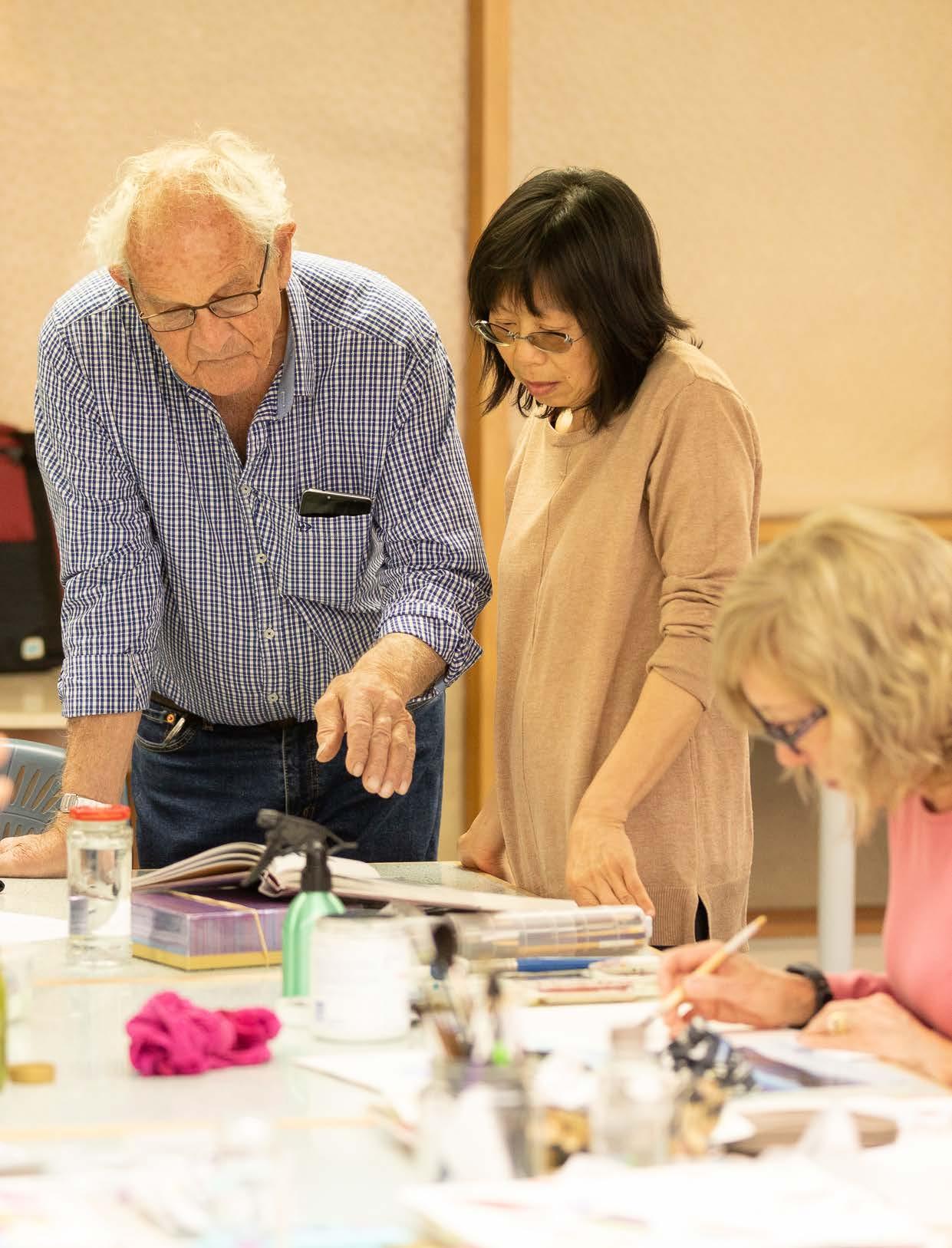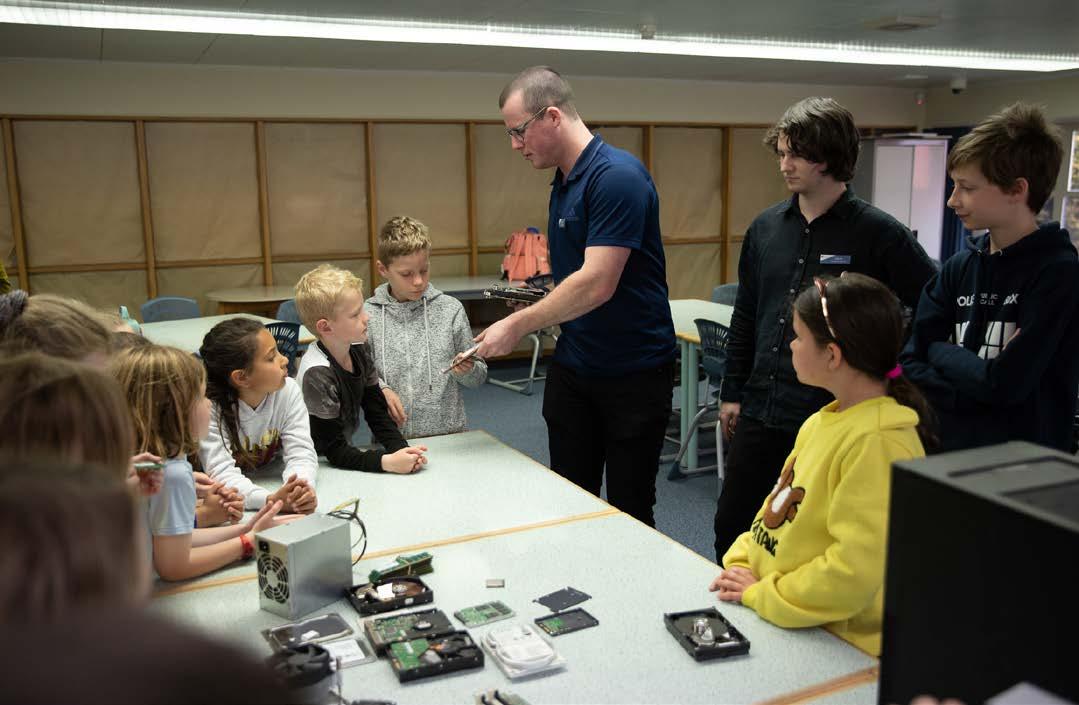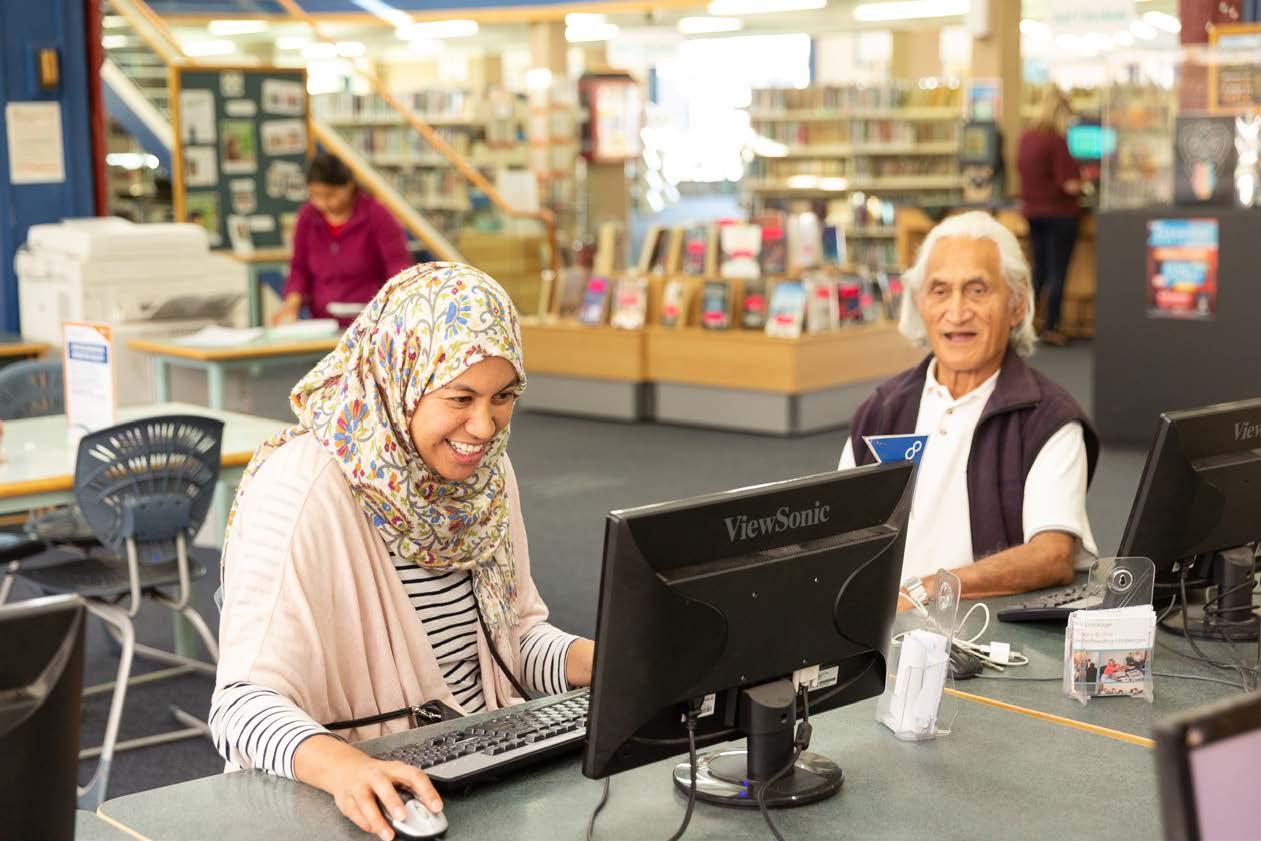
3 minute read
Progress on the Libraries’ Strategic Plan, 2016-2020
Implementing recommendations from the last LSP resulted in an immediate increase of 14 hours across the libraries network at no additional cost to Council. It also saw the removal of charges for use of public internet and wifi. These changes led to a 14% increase in visitation, while internet use almost doubled. Wifi use increased by more than 18 times compared with the previous year. These initiatives extended the libraries’ accessibility for the community, a key theme of the last LSP.
Other areas of focus included:
Advertisement
SPACES & BUILDINGS
HD Libraries have been refurbished periodically to update their look and feel; improving the flow into and through the building with new layouts; relocating service points and adding meeting spaces. COMMUNITY

The Libraries continue to enable and empower customers, evolving services with customer needs in mind and underpinned by a philosophy of enhancing appeal to diverse communities of interest. The Libraries are confident in experimenting with how to deliver these best and respond nimbly to changing needs and interests. Evidence of this is the development of inhouse summer holiday programmes for children and teens that are more tailored to local needs and which constantly evolve to meet changes in demand and trends. Another example is change to opening hours implemented from 2020 in response to patterns of use and customer preference for more late nights.
LEARNING & DISCOVERY
As appropriate to each person’s need, customers are supported to be self-sufficient in their use of library services and technology, while staff are moving towards a role as curators rather than content creators. Programmes, particularly on the heels of the COVID pandemic include more self-driven activities that flex around busy lives rather than requiring physical attendance at a specific time and location to participate. Access to library-held information resources and technology remains free. Technology offered includes a range of basic software, but balancing community expectations with the level of investment required is challenging. Some library services and content are available online 24/7 and this was boosted in 2020 as the country went into lockdown, with databases, ebooks and downloadable audiobooks both purchased and used more.

PROGRAMMES & OUTREACH
The link between low levels of literacy and social outcomes related to income, health, education through to crime has been well established. HD Libraries offer diverse programmes to support literacy and work with a range of community groups, agencies and government organisations (such as the Hawke’s Bay Regional Prison) both on and offsite, but there is limitless opportunity to do more with additional resourcing. Just as do other public libraries, significant resources have historically been directed towards supporting children and teens, but this is broadening. Furthermore, with an operating model based along functional lines as opposed to geography, these skills and expertise are utilised right across the network, not simply at a single site. STAFF
A big focus of the last LSP was to foster greater skill diversity within HDL staff – a move away from branch-based roles and to support staff to collaborate more on programmes and services for customers. The previous model of staffing has been replaced with a model that emphasises the districtwide team, with all staff now working flexibly across all sites on a regular basis across hours of opening. This creates opportunities for job enrichment, but it also means that all staff have an appreciation for the different needs of each community, as well as an understanding of district-wide library service delivery. A goal was to ensure greater diversity of staff in terms of better reflecting the communities served. Slow but steady progress has been made on this goal, although feedback from the stakeholder engagement indicates that more work is needed. As at late 2020 the Libraries have specialist resource targeted at older adults and Pasifika engagement, both noted as gaps in the previous LSP.
Confidence and competence with technology was a further goal and again, there have been some gains, but there is always more to work on.




